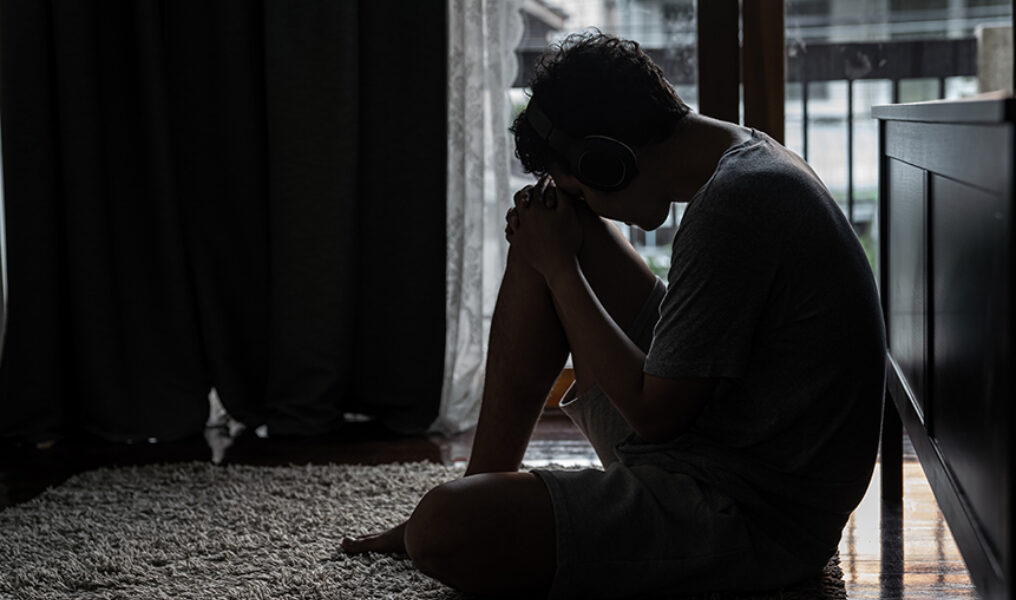Jim Toy Advocated on Behalf of Gay U-M Sexual Abuse Survivors in 1979. Now Those Survivors Are Speaking Out.
Keith Moree told Pride Source that Toy supported him when the university wouldn't

Robert Anderson, the former University of Michigan Health Services director and, later, senior physician for the athletic department, who sexually abused countless students — mostly men — died of pulmonary fibrosis in 2008. Today, his “legacy” lives on as survivors step forward to recount Anderson’s decades-long reign of terror.
It started with Robert Stone, a gay man, and his essay, titled "My Michigan Me-too Moment, 1971," that he sent to school officials. The essay described his experience in Anderson’s exam room as a graduate student in the 1970s. After officials received it, the first public airing of allegations was held in February 2020. Only then did the university take steps to establish a hotline and begin an investigation. Keith Moree, who is also gay, joined Stone Tuesday, Jan. 18 for a press conference.
A report conducted by the independent law firm WilmerHale
reveals that numerous complaints were made against Anderson as early as 1975, but no decisive action was ever taken. It was an open secret that Dr. Anderson “always makes you drop your drawers," regardless of the reason for a medical appointment, former UM wrestler Tad Deluca wrote to then-coach Bill Johannesen and Athletic Director Don Canham. Anderson didn’t retire until 2003.“What I learned is that Dr. Anderson became more and more empowered,” Stone said. “He was untouchable.” Stone described Anderson’s barbaric practices, which included attaching electrodes meant for muscle stimulation to Anderson's own and his victims’ genitals. “This is a Dr. Frankenstein, and these are the kinds of things that went on,” Stone said. “I'm not pleased to be bringing you these stories, but you need to know.”
Stone decried the “tenure and toxic masculinity” that allowed Anderson’s assaults to continue unchecked for over 30 years.
“Many of [Anderson’s victims] are afraid to speak at all; they don't want to come forward because they're traumatized, because they feel some guilt — which is completely inappropriate,” Stone said. “They had nothing to do with being sexually molested; they just showed up in an exam room.”
Instead of “stuffing it down,” Stone encouraged more survivors to come forward.
“In cases of sexual assault, you man up by speaking up, and I would encourage all of those people who feel like they can't speak about this to do so,” Stone said. “If you can't speak about it personally with the people you love, speak about it with a therapist, because you're not helping any of us or yourself by continuing to remain silent.”
Moree was abused by Anderson in the late ‘70s, when he volunteered at the Gay Advocate’s office, where legendary LGBTQ+ activist Jim Toy served as Gay Male Advocate. Moree was just coming out, and Toy quickly became a mentor.
The scene that played out when Moree appeared in Anderson’s exam room for a possible STD was truly bizarre, as Moree described. He told Pride Source it didn’t amount to physical abuse, per se; it could be categorized as emotional or psychological abuse. Either way, it was abuse, and it was traumatic.
“While I had my pants down waiting for an exam of my genitalia, [Anderson] starts talking to me about how families who were having a kid often wanted to know about what were the differences between circumcision, and having the child left uncircumcised,” Moree recalled. “And then I’m thinking, ‘Well, what is he talking about?’ And he starts commenting about himself… and he said sometimes families want to see an uncircumcised penis, so they know what it looks like, so he would show them his.”
Anderson then talked about what masturbating with an uncircumcised penis felt like while Moree believes the doctor may have been stimulating himself. Stunned, Moree wondered if he misperceived what had happened.
The serial sexual abuse that Anderson inflicted on gay men in those earlier years was especially egregious, because it occurred at a time that it was often unsafe to come out, and both Stone and Moree were examined by Anderson for reasons related to their sexual orientation, which meant disclosing that information to the doctor. Anderson counted on many of his victims feeling too fearful or ashamed to report the abuse.
“When I decided to make a complaint about what had happened to me, I had to think, ‘Well, who's gonna find out about this?’ said Moree. “‘Is my family gonna find out about this? Is it gonna end up in the newspaper?’ Those kinds of things. And those were very, very difficult possibilities for me to entertain at the time.”
When Moree reported to Toy what had transpired, he discovered his experience was not unique. Unknown to Moree, another student had reported a similar interaction with Anderson but there was until then no corroborating evidence. With Toy’s support, he and Moree convened a meeting with Thomas Easthope, then assistant vice president for student affairs and Anderson’s supervisor.
An investigation was held and Easthope promised that Anderson would be removed from contact with students. However, that’s not at all what happened. Although Easthope later testified he “tried to fire” Anderson in 1980, he was overruled by Vice President for Student Affairs Henry Johnson, despite Johnson’s knowledge of Anderson’s behavior. Anderson was “shuffled around” and reassigned as senior physician for the athletic department in 1981, a position he would hold until retiring in 2003.
Moree’s interaction with Anderson had a profound and lasting impact on him.
“I think what happened was that I met Dr. Anderson at the time when I was still figuring out my own identity and figuring out how I would be in the world and how I would live my life,” Moree said. “And I was kind of just shocked, and I thought, ‘Is this how a gay man is, that there's no way to be with people or do anything other than to take advantage of people that you have power over?’ The whole experience was so disgusting to me. It really messed with my head.”
Moree expressed appreciation to Robert Stone for bringing the story back out into the light.
“I also want to acknowledge Jim Toy, a dear friend and mentor, who in his role as a male advocate at the University of Michigan, walked with me through the difficult experience of filing a high-level complaint against the practicing physician. Jim Toy died on New Year's Day. May his memory be a joy and an inspiration to us all. Jim Toy spoke truth to power.”
University agrees to settlementA $490 million settlement was announced Wednesday that represents 1,050 survivors who brought allegations of sexual misconduct against the late Dr. Anderson.
Moree has mixed feelings about the settlement. On the one hand, he said, it’s great that the university is finally taking responsibility for what happened.
“All of the apologies and things that were coming from high levels of the university were things like, ‘We're so sorry that this happened to you. We're so sorry that Dr. Anderson did this to you.’ What I was waiting to hear was, ‘We're so sorry that we let this go on years and years and years and years after we knew about it.’” Moree is also hopeful that restitution will help survivors heal.
However, Moree is suspicious the agreement was reached just as ousted university president Mark Schlissel is facing his own scandal, where lack of transparency played a key role as well.
“I think what happened was the Board of Regents decided, ‘We cannot continue having the reputation of the University of Michigan dragged through the mud like it's been, and now we've got [Schlissel’s firing] on top of it, we need to get this all settled,’” Moree said. He said he suspects they’re eager to have the university community talking about something else: winning at football or wrestling, for example.
Moore said he wants the university to have a serious conversation among students, faculty, alumni, and the Board of Regents focused on how to approach similar situations differently in the future.
“I'm just a little concerned because I think that culture [is] so present,” he said. “You make people into these untouchable figures that can pretty much do anything as long as they're winning or bringing academic accolades to the university. Whatever it is, that thing that they're supposed to be doing to boost the university, as long as they do that, they can be excused.”









